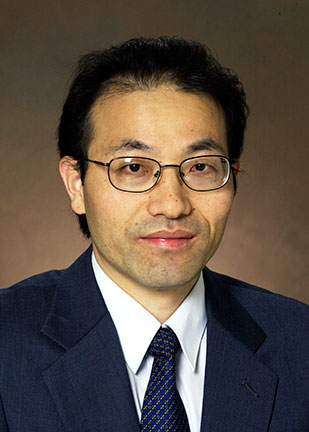
Xiangfa Wu, assistant professor of mechanical engineering, has received a three-year, $218,325 award from the National Science Foundation to conduct research outlined in his proposal, titled “Multi-Physics Modeling and Experimental Characterization of Needleless Electrospinning for Scalable Nanofiber Production.” The funding also provides research opportunities to graduate and undergraduate students to develop computer-aided electrospinning strategies for continuous, scalable production of ultrathin fibers or wires with the diameter in the range of a few nanometers to micrometers.
The research program in Wu’s group focuses on using electrospinning to produce nanofibers of a variety of materials such as synthetic and natural polymers, carbon, ceramics and metals, with well controlled size and morphology for advanced applications including high-strength self-healing polymer matrix composites, high-performance electrodes for use in supercapacitors and rechargeable batteries, ultrafine liquid and gas filters. Electrospinning is a low-cost, top-down nanomanufacturing technique based on the principle of electrohydrodynamic jetting. Recently, the nanofiber productivity of electrospinning has been enhanced in orders by introducing the concept of free-surface electrohydrodynamic jetting or needleless electrospinning. Yet, controllable needleless electrospinning has not been explored fully. Based on the funding from the National Science Foundation, Wu’s research group will study computer-aided electrospinning engineering for intelligent mass production of nanofibers with tailorable properties. One of the research goals is to gain a fundamental understanding of the entire process of needleless electrospinning, including jet initiation and elongation, drying, phase separation and nanopore formation by developing an efficient three-dimensional multi-physics phase-field model and related experimental validation.
According to Wu, students involved in the proposed investigations will learn advanced computational multi-physics modeling, design and optimization of electrospinning devices, controllable nanofiber manufacturing and characterization.
The research is funded by National Science Foundation award No. CMMI-1234297.
NDSU is recognized as one of the nation’s top 108 public and private universities by the Carnegie Commission on Higher Education.